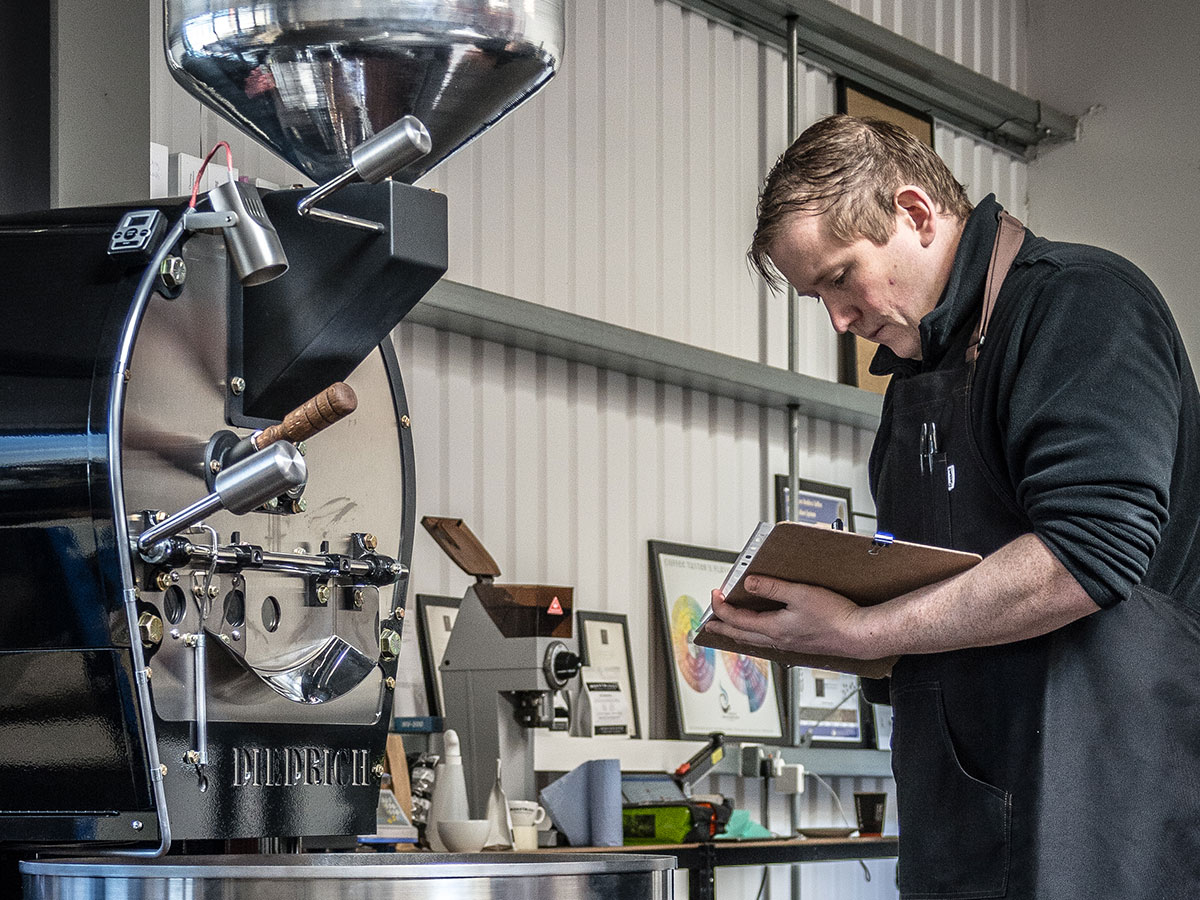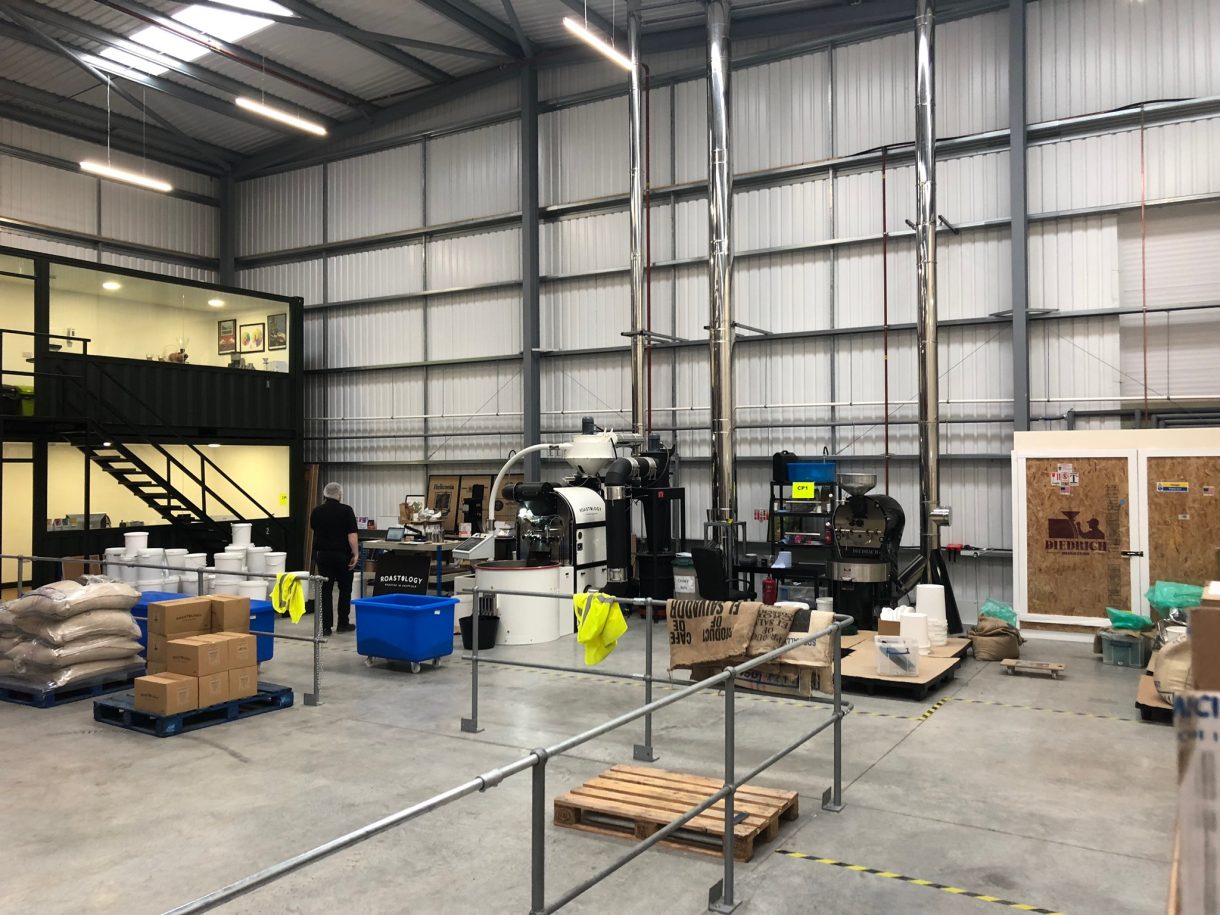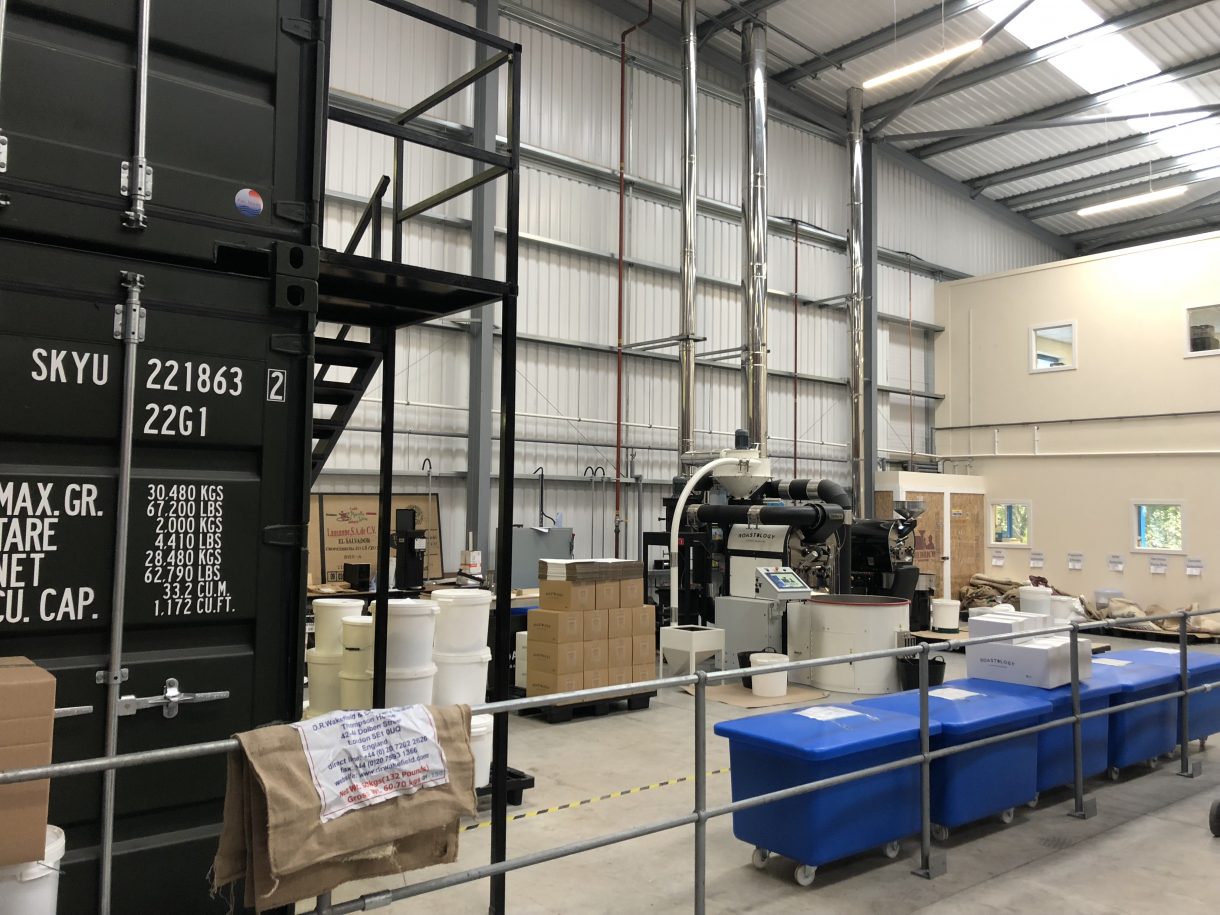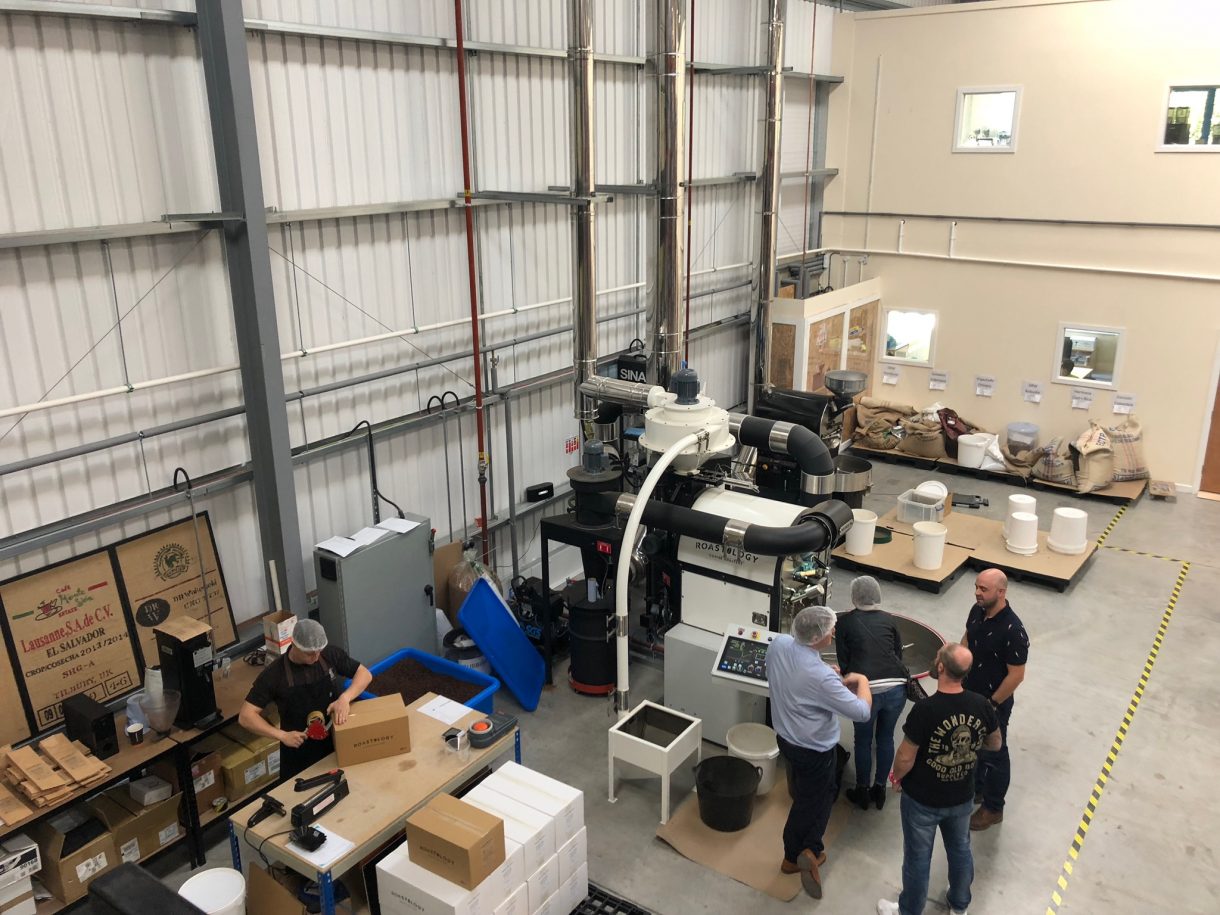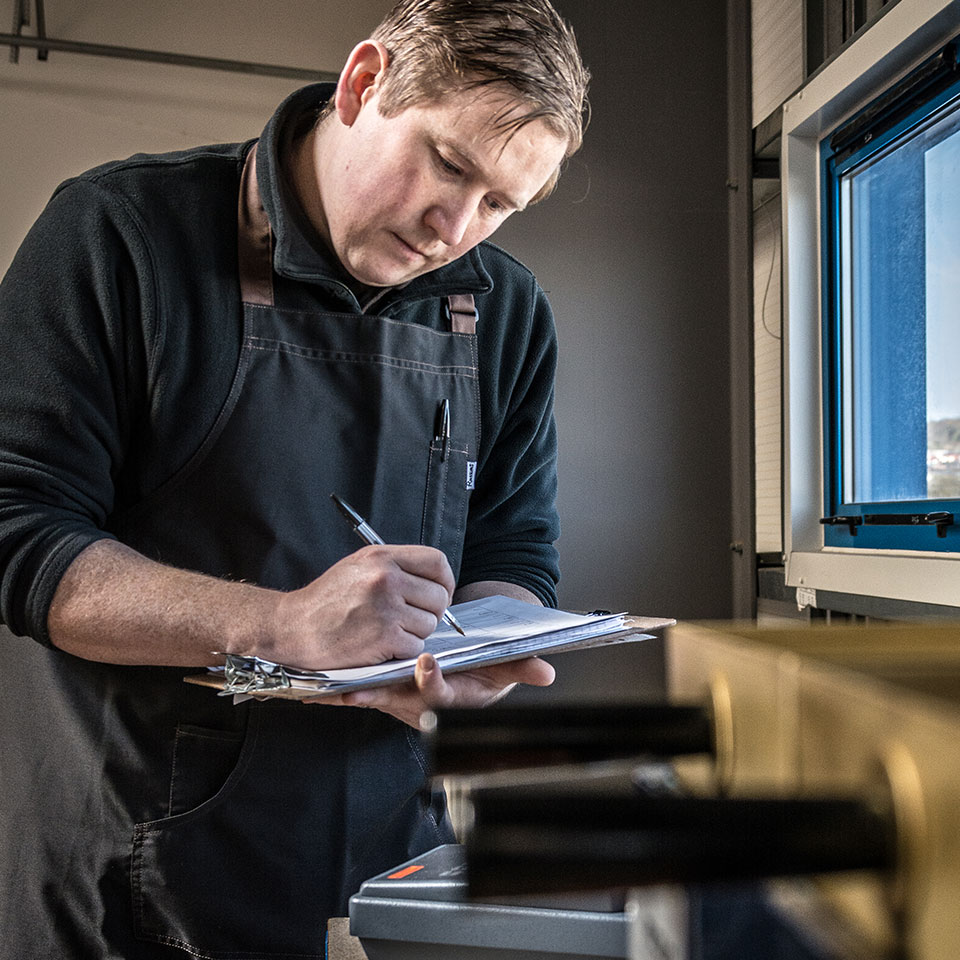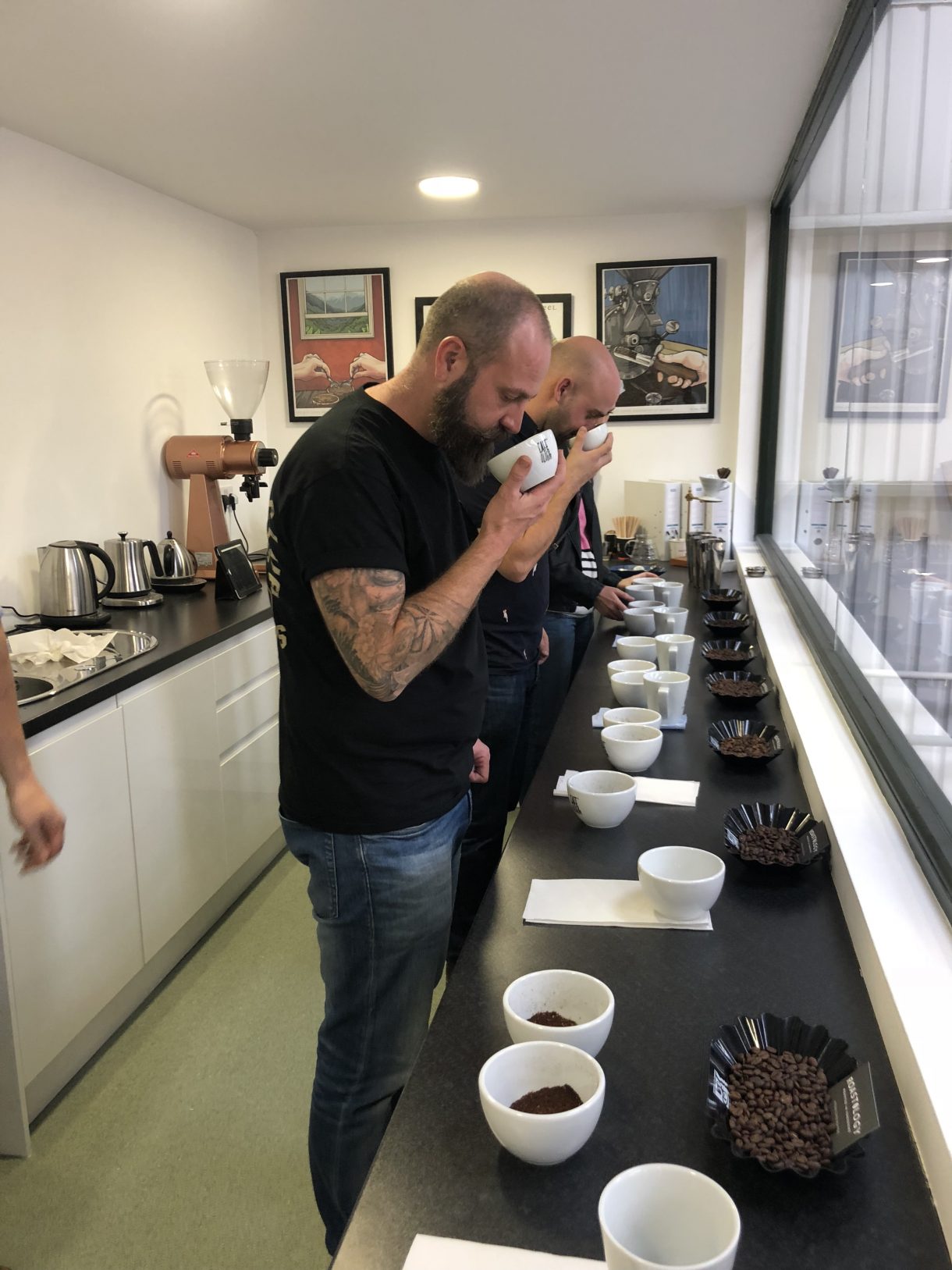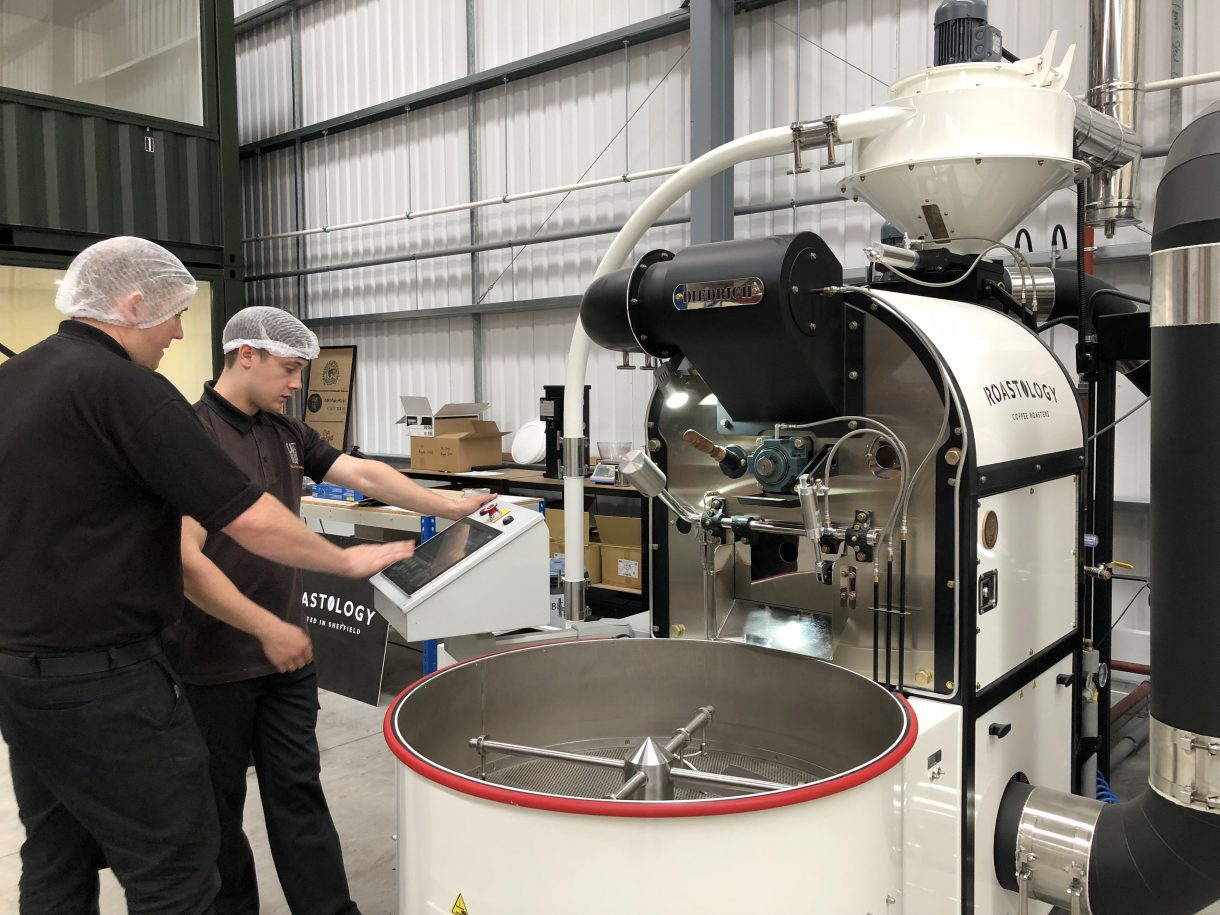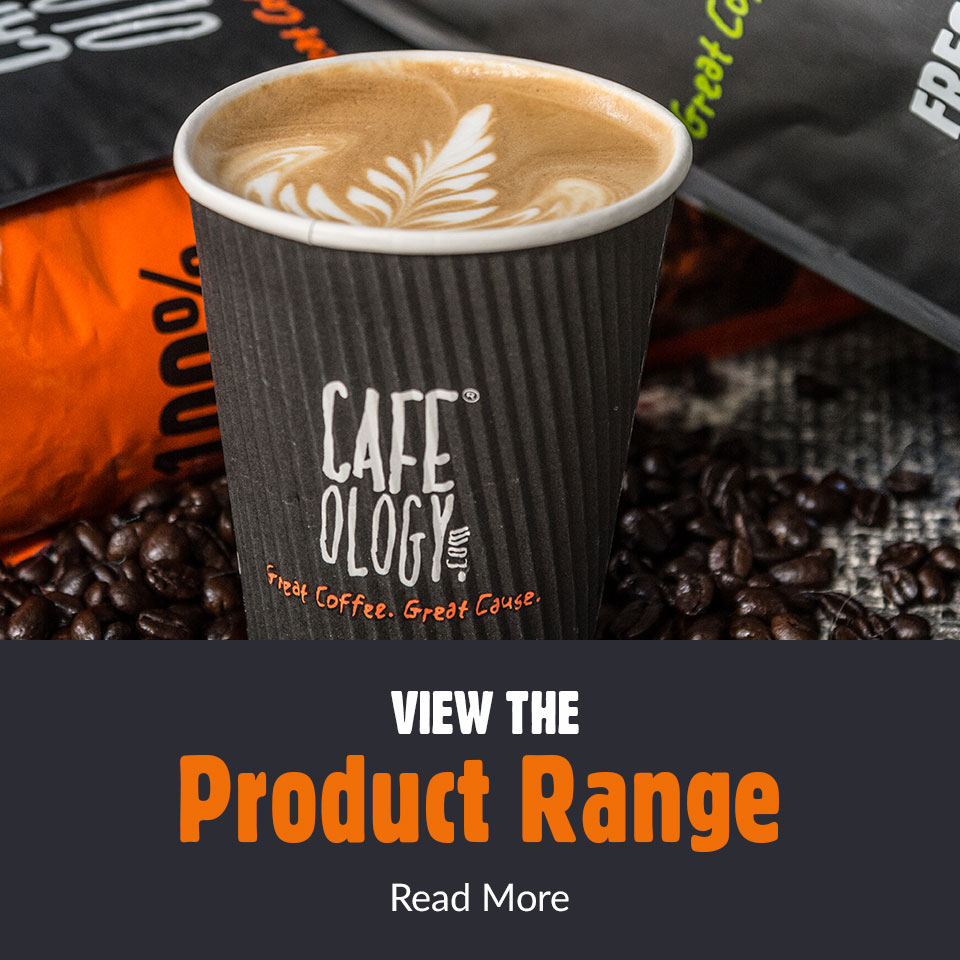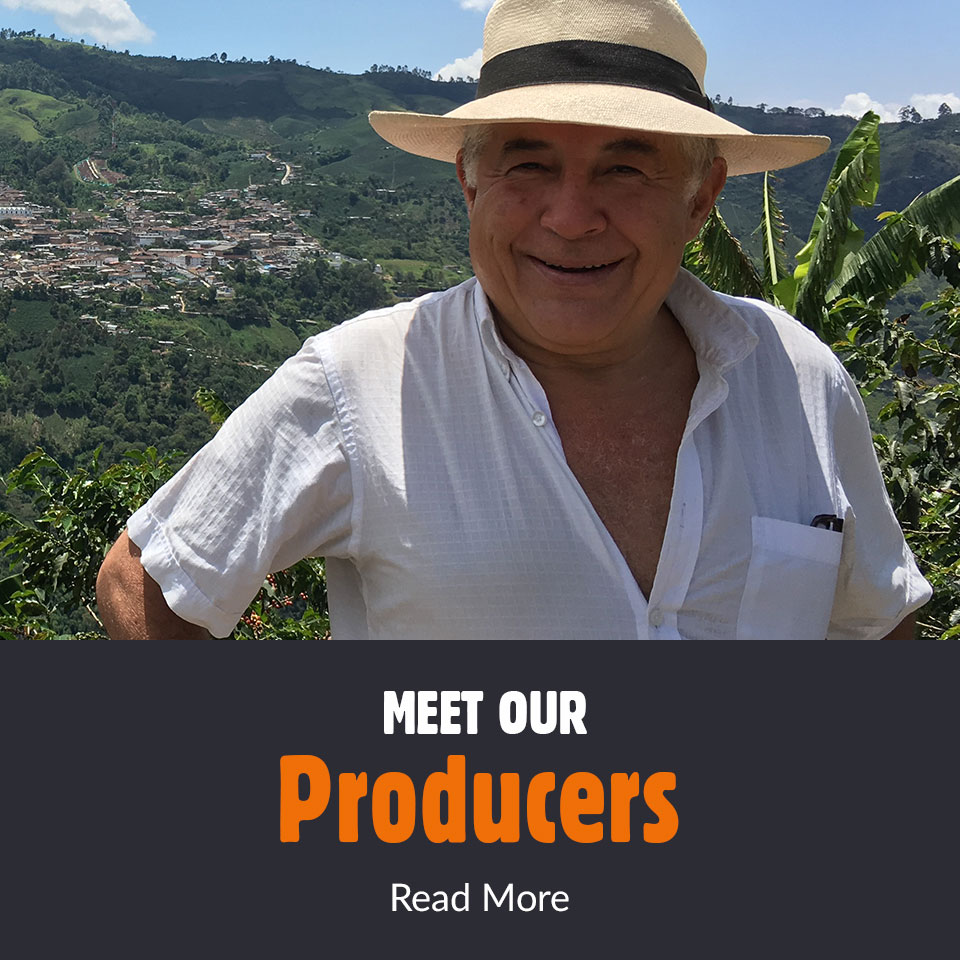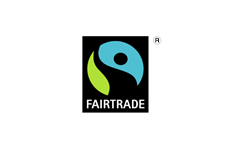Roastology Coffee Roasters
What we love to do most - 'Roast Host and Innovate !'
Roastology - Coffee Roasters in Sheffield
We were keen to implement our years of experience into roasting some of our own ethically sourced green bean, so plans were put in place to install a state-of-the-art coffee roasters at our first distribution centre in Sheffield in 2016.
Quality equipment was paramount and after careful research we bought and installed a brand new Diedrich IR-12 roaster and Probat BR-2 sample roaster.
We also invested in a Sinar Beanpro; a superb little bit of kit that gives us moisture and density readings from our green and roasted coffee beans – a must-have for quality control and consistency.
Our expertise has developed and growth since this time by throwing ourselves into the fascinating world of coffee roasting therefore we were eager to move to the next chapter of creating a bespoke new Roastery. After searching for the ideal premises we located these very nearby and following the move to our new premises in June 2018 this has seen us develop and create the perfect environment for a coffee roasters and roasting of our own blends.
Our new coffee roasters is located on reclaimed land which lies within the footprint of the demolished iconic Sheffield Cooling Towers the landmark when passing Sheffield on the M1 is the ideal location as a distribution hub throughout the UK.
After completing the move in June 2018 we needed to develop and create our perfect roastery and after much research we decided to invest in a Diedrich CR35 as the performance of the Diedrich IR12 has been very impressive. August 2018 saw the commissioning of the new big sister the Diedrich CR35 and she certainly has lived up to expectations as we are now able to increase capacity whilst still maintaining a beautifully clean cup through the innovative infra-red technology.
In addition to the new roaster we have also installed our new Posiweigh station which gives us speed and accuracy when packing however still ensuring that the final touches are by hand as we feel that the personal touch is crucial in maintaining the Roastology look and feel.
We were keen to create the perfect environment in which to roast, host and innovate therefore, we sourced two single use containers and have created two designer units the lower unit as a bespoke office space with a cupping laboratory above which gives a perfect vantage point to observe the roasting process which QC’ing each and every batch of coffee before it leaves.
The new coffee roastery would not be complete however without the skilled team that roast, cup and pack the coffee we would love you to call and see our operation and the level of care and craftsmanship involved so if you are interested please contact us for further information and available dates.
Long-standing Cafeology team member Steve Hampshire, who has a strong background in hospitality and management, has developed a real passion for coffee was keen to take on the challenge of heading up the Roastology project.
Steve has studied to become a Speciality Coffee Association (SCA) qualified coffee roaster. Additional SCA qualifications in green bean and sensory areas, coupled with his enthusiasm for the coffee industry, have made him the perfect representative to take Roastology further.
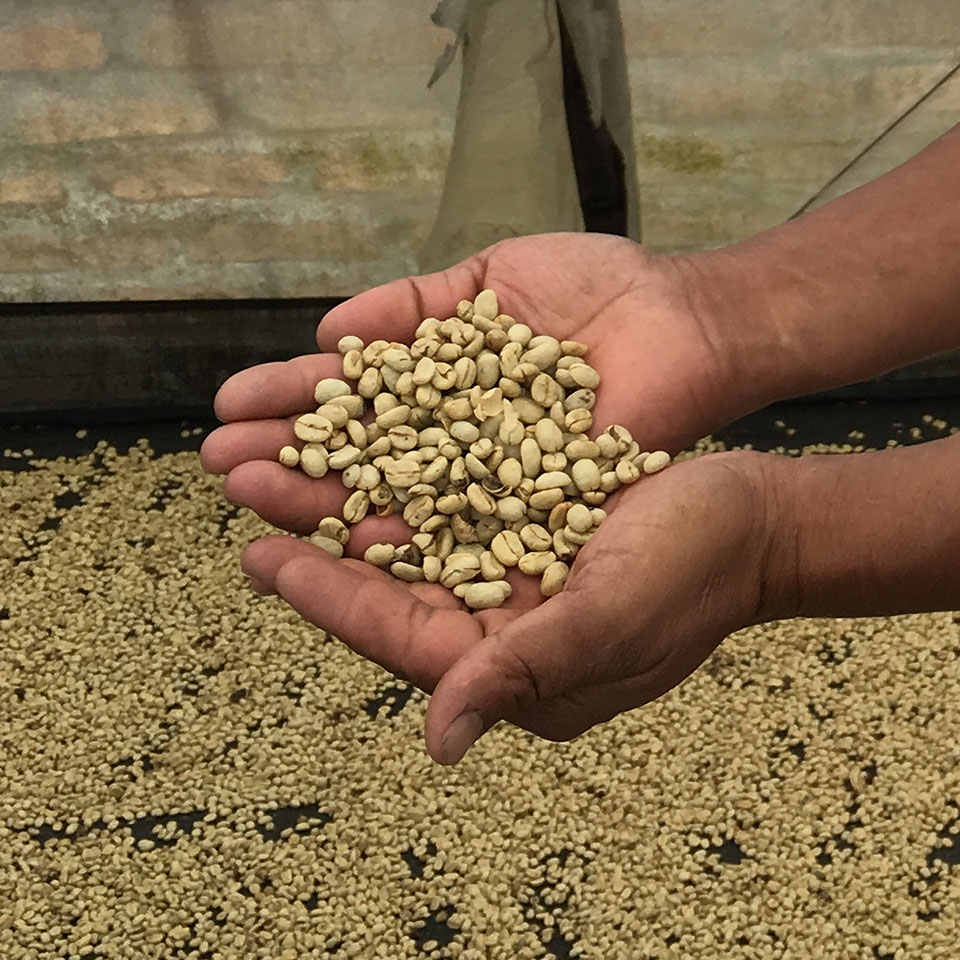
Ethical coffee
Roastology upholds the same ethics as Cafeology: every lot of green bean we purchase from around the world has full traceability providing direct trade with our growers.
We specialise in small artisan batch roasting and every roast is done by our carefully trained staff, who take great pride in ensuring quality and consistency. We love to work with customers to develop blends and roasts – our Diedrich IR-12 has a 12kg capacity, meaning each roast is special.
Producing great small batch coffee is our passion and if you love espresso or filter coffee we have a roasted coffee bean for you.
Our Roast Process
QC Checks
It is very important for us to implement quality control on all samples and shipments of green bean coffee that come through our coffee roasters.
We love to buy speciality grade coffee and our moisture reader is key to checking: the SCA states that a speciality grade coffee must have a moisture reading of between 8-12%.
The different QC checks we do at this level give us a great indication of how the coffee will roast and ensure all the coffee we use fits into our own tolerance levels.
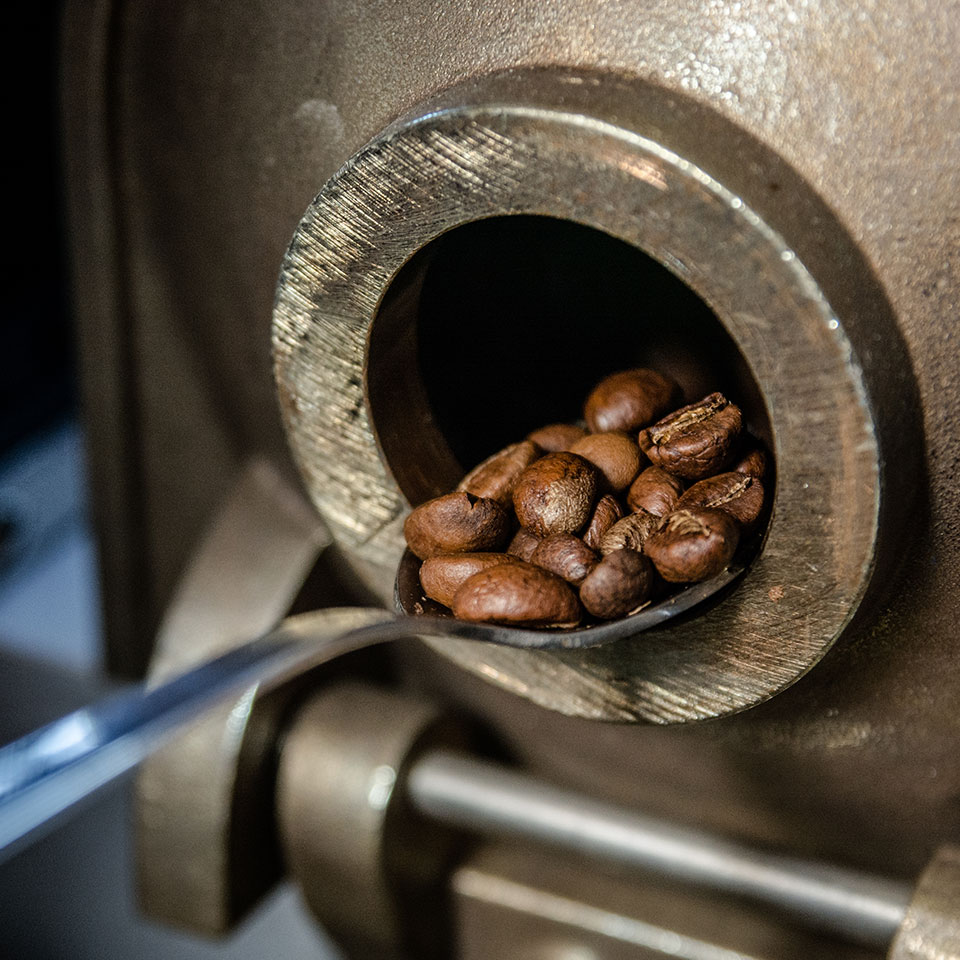
Sample Roasting
The sample roaster is a key to enable us to taste the different green bean coffee samples we order in and we roast a small amount of each - approximately 100g for anywhere between eight and 11 minutes.
Once this has had time to de-gas we will then ‘cup’ the coffee. This is the industry standard way of tasting coffee.
We grind the coffee beans and let them brew for four minutes, once the time is up we break the crust that forms on top and take in all the wonderful coffee aromas that are released.
Once the coffee is cool enough, using a special cupping spoon, we slurp the coffee, making sure we cover the whole mouth with the drink in order to best analyse the flavours that are present. Only the best tasting coffee is selected for purchase.
Roasting
After sample roasting and tasting, it's time to roast a bigger batch. All the QC checks are carried out once again to ensure the beans are the quality we are expecting.
The roaster is fired up to the designated temperature and the green beans are dropped into the drum. The temperature in the drum will then plummet, but after around 90 seconds we will start to see the temperature rise.
Every different origin of green bean will roast differently, so each roast profile we create has been carefully mastered.
During the roast, the coffee goes through several stages of development.
First is the yellow stage, when the beans start to colour and give off a hay-type aroma. Cinnamon follows, when the coffee changes to a golden colour and presents a popcorn smell – it is at this stage the beans start to look like the finished product.
The beans will then go into first crack, when they have taken in as much endothermic heat as they can and the gasses are released making a ‘popping’ sound.
If we are roasting for filter coffee or espresso each finished blend has its own profile which will differ from the other.
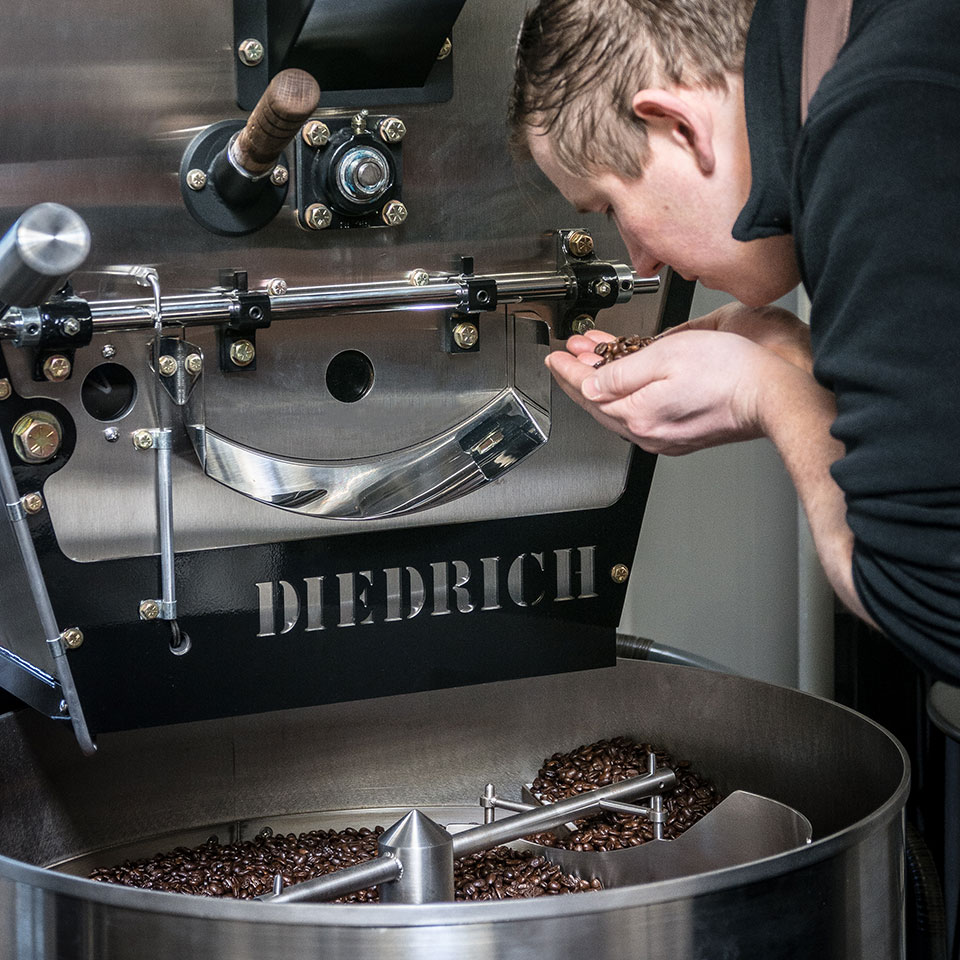
Cooling
It is important to quickly get the beans cooled down to room temperature. The industry standard is four minutes, so once we are happy with the roast we drop the beans into our cooling bin.
Here, cold air is quickly drawn through – if the beans stay too warm they can carry on roasting, thus changing the desired flavour profile.

